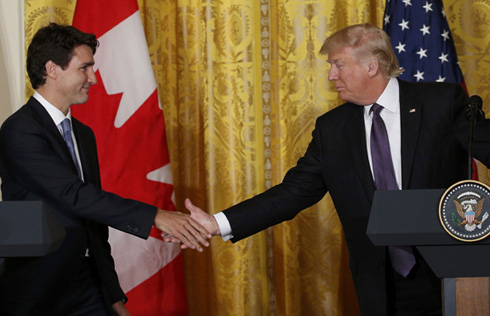Obama makes plea for gun control legislation
Republicans insist that any pathway to citizenship for 11 million illegal immigrants be preceded by certification that US borders are secure.
The biggest stumbling block to an immigration bill concerns creation of a guest-worker program to allow immigrants to cross the US-Mexican border legally for temporary jobs.
US labor unions, which worry such a program would lead to a loss of jobs for Americans, and the US Chamber of Commerce have yet to arrive at a formula acceptable to both. Their agreement is considered crucial to bringing Congress along.
Obama has said he is encouraged by the progress, and he believes the dispute over the guest-worker program can be resolved. After first declaring the US-Mexican border sufficiently secure, Obama now says it can be improved, a position that may permit him to make a deal with Republicans.
"I'm actually optimistic about this, in part because I think both Republicans as well as Democrats are now recognizing that it's the right thing to do," Obama told Univision, a Spanish-language network, in an interview on Wednesday.
Obama's attempt to negotiate a "grand bargain" aimed at reducing the US budget deficit is facing old-fashioned political gridlock and could collapse into a partisan sinkhole.
In a fresh round of schmoozing to discuss this and other legislative items, Obama will dine with a dozen Republican senators on April 10, the second such meeting he will have held in his attempts to engage his political opponents.
Taxing the rich
Lawmakers are still bruised from a fight over $85 billion in automatic spending cuts that went into effect a month ago despite Obama's attempt to head them off.
Obama still wants what Republicans refused to give him in that budget fight, an increase in taxes on the wealthy by eliminating some deductions and loopholes. Republicans instead want to cut spending.
The White House struck a pessimistic note this week on the prospects for success given the Republican leadership's refusal to agree to raise more tax revenues.
"As long as Republicans are saying we're not going to ask the wealthiest and well-connected to pay a single dime to reduce our deficit, then it is hard to imagine that we're going to reach a compromise," White House deputy press secretary Josh Earnest said Wednesday.
The difficulties in gaining passage of major legislation reflects the continued grip partisan politics holds on Washington, with the White House and Senate run by Democrats and the House of Representatives controlled by Republicans. This makes the 2014 midterm congressional elections of increasing importance.
"Look, it's what we all thought when Obama was re-elected," said Larry Sabato, director of the University of Virginia's Center for Politics. "There is just not going to be a lot of new legislation in Obama's second term, unless he wins the House in 2014, and even then it looks very, very tough."




















